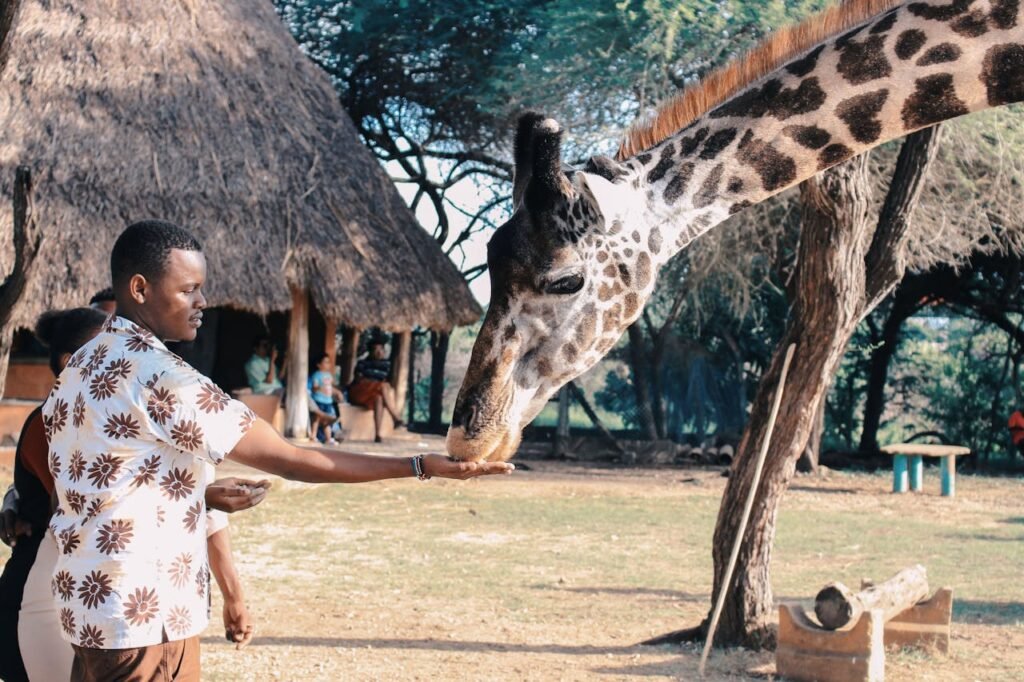Key Takeaways:
- Defining individual goals for a personalized safari experience
- Choosing the correct type of safari experience for your taste
- Packing strategically to anticipate various safari needs
- Identifying the best time to head out on a safari
- Implementing health and safety precautions
- Contributing to conservation and community development
- Adhering to ethical photography practices with wildlife
- Enhancing the overall enjoyment of your safari expedition
Imagine waking up to the sound of the African wilderness, the air fresh with the dawn chorus of birds and the distant roar of lions. It can be more than just a dream for those captivated by the thought of exploring untamed landscapes on a safari. With the goal of adventure and discovery, a successful safari is the product of thoughtful planning and a deep respect for the natural world. The planning process, from selecting places to scheduling your Tanzania safari itineraries, creates the framework for an unforgettable experience.
Defining Your Safari Goals and Expectations
Each safari is unique to the individual, so starting with a self-inquiry about what one hopes to get out of the adventure is essential. The spectrum of safari objectives is broad; you may be a wildlife enthusiast wanting to study the subtle patterns of animal behavior or someone who wants to revel in the luxury of the wild and prefers a calm getaway from the hustle and bustle of everyday life. Mapping out these expectations helps streamline the vast array of choices, from selecting the geographical regions known for specific wildlife to pinpointing the accommodations that can serve as perfect bases for exploration.
Types of Safaris and Choosing the Right One
How you experience the wild significantly affects your overall safari experience, and different types of safaris cater to different tastes. Overland safaris offer an over-arching understanding of the landscape for the intrepid explorer. In contrast, a fly-in safari can whisk you away to remote areas, maximizing your time amidst the wilderness. There are also family-friendly safaris that ensure safety and engagement for all ages, with educational guides that make learning about the environment fun for youngsters. When selecting your safari, consider the level of adventure, comfort, and intimacy with nature you desire to ensure a fulfilling expedition.
Packing Essentials for Safari
Strategic packing is the cornerstone of any well-prepared safari-goer. Beyond the necessities, such as weather-appropriate attire and a good pair of binoculars, consider including items that enhance your experience. For example, photographers should bring a high-quality camera with a zoom lens; bushwalkers should get a pair of walking boots and additional power banks to keep their gadgets charged and ready to record memories. Remember, the climate can vary dramatically day to night, so packing for layering is key. Additionally, environmentally friendly toiletries show consideration for the ecosystems you will be visiting.
Timing Your Safari: When to Go
The time of year you choose for your safari can frame the entire narrative of your adventure. Wait until the dry season’s climax for an adrenaline-pumping meeting with predator and prey near rare waterholes, or visit during the green season to avoid crowds and enjoy a more vivid environment. Many safari-goers plan their trips around natural events like the dramatic annual wildebeest migration. However, it is essential to note that such spectacles have specific timing and locations, and a good understanding of these can set the stage for a riveting live-action experience in the heart of the wild.
Consulting Weather Patterns and Animal Behaviors
While spontaneity has its charms, safaris are best enjoyed with adequate research and planning. Studying the tendencies of wildlife through different seasons and consulting documented patterns can clarify when and where to travel. For more nuanced guidance, resources such as insights from National Geographic on safari timing can be an invaluable asset in making informed decisions for your excursion.
Health and Safety Measures to Consider
The wilderness holds wonders and potential risks, making health and safety precautions paramount. Investigating vaccination requirements and preventative measures against illnesses endemic to the region are non-negotiable. Furthermore, ensuring access to information on the nearest healthcare facilities, preparing for medical emergencies, and securing robust travel insurance will enable you to immerse yourself in the safari experience with fewer worries and greater peace of mind.
Understanding the Conservation Impact of Safaris
Every journey into the wild leaves a footprint, and being part of safaris that tread lightly is essential for the sustainable future of these precious habitats. From supporting initiatives that empower local communities to choose camps that operate on eco-friendly principles, the conscientious traveler can play a significant role in the conservation narrative. It is gratifying to know that your visit not only filled your soul with memories but also helped preserve the natural heritage for future generations.
Photography and Animal Encounters: Ethical Guidelines
While bringing back stunning imagery from your safari is an enticing prospect, it should never come at the cost of wildlife well-being. Maintaining a safe distance, respecting the animals’ space, and minimizing noise are essential. Despite the excitement of encountering a rare species, our responsibility is to preserve their space and serenity. Guidelines from organizations can encourage photographers to maintain ethical standards while documenting their journey.
Maximizing Your Safari Experience
The allure of safaris lies in the grandeur of African megafauna and the collective moments of discovery and reflection. Engaging with local guides, embracing patience during game drives, and even supporting conservation projects in the regions visited are just some ways to enrich the overall experience. The call of the wild is compelling, and with the right mix of planning, responsibility, and openness, your safari can transcend ordinary travel and become a transformative journey through one of Earth’s last great wildernesses.

